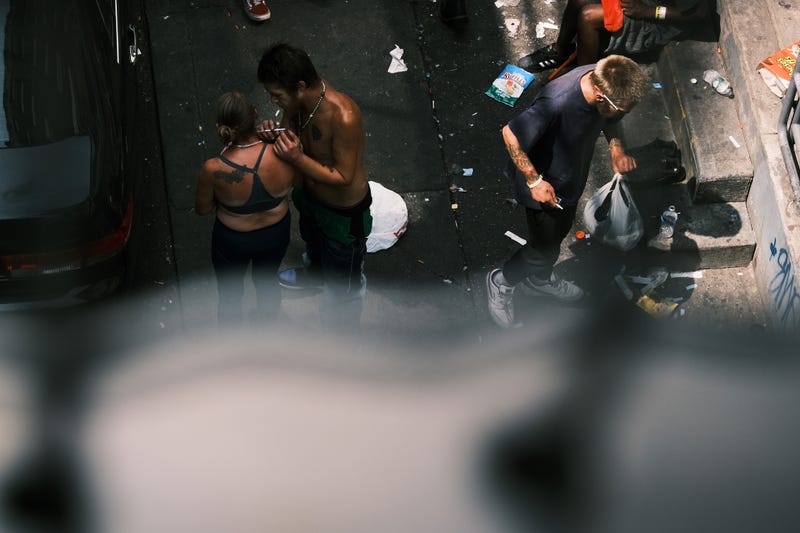
PHILADELPHIA (KYW Newsradio) — Philadelphia officials have issued an ambitious plan to reduce the number of drug overdose deaths expected to happen in the city this year. The third annual overdose response plan even takes on the open-air drug market in Kensington.
The plan expands on some existing programs and creates new ones. Last year, the city distributed 54,000 doses of naloxone, launched a mobile wound care van to treat the lesions caused by the drug xylazine and awarded $3.5 million in grants to community organizations to help prevent overdoses.
This year, in addition to continuing existing programs, officials plan to launch a mobile methadone clinic, increase the amount of housing for people in recovery and try a new strategy to disrupt the Kensington drug market.
Noelle Foizen, the director of the opioid response unit, says the new strategy is called Drug Market Intervention, or DMI, and is similar to the Group Violence Intervention approach. Non-violent, street level dealers are targeted for prosecution, but their cases are suspended, and they get help to stay out of the drug trade, if they permanently stop dealing. If they continued, they’d be vigorously prosecuted.
“It’s really important that we’re not just displacing it, that we not only disrupt it but stop it from returning,” she said.
In 2021, the last year that data is available for, Philadelphia recorded 1,276 overdose deaths.
“A big reason why it’s so dangerous in Kensington is that anybody can show up any time of day and find multiple drug corners where they can purchase drugs. They don’t need to have any relationships. They don’t need to know anyone. And so, what the drug market intervention does is look at: How do you break up that overtness of the drug market.”
Foizen says it will be a massive task, requiring state and federal partners, who’ve already been meeting to develop a plan.
DMI is just one of the new programs. There will also be a mobile methadone van to get more people into recovery and more units to keep people housed while they recover. There will also be an expansion of existing programs — such as naloxone and fentanyl test strip distribution — citywide and outreach beyond opioid users, because Foizen says the problem is touching all communities.
“Fatal overdoses are happening in every ZIP code in the city, and the majority of fatal overdoses are happening at home, so it’s really important that people understand: These are your neighbors; these are your loved ones — and making sure they have resources available to themselves.”



